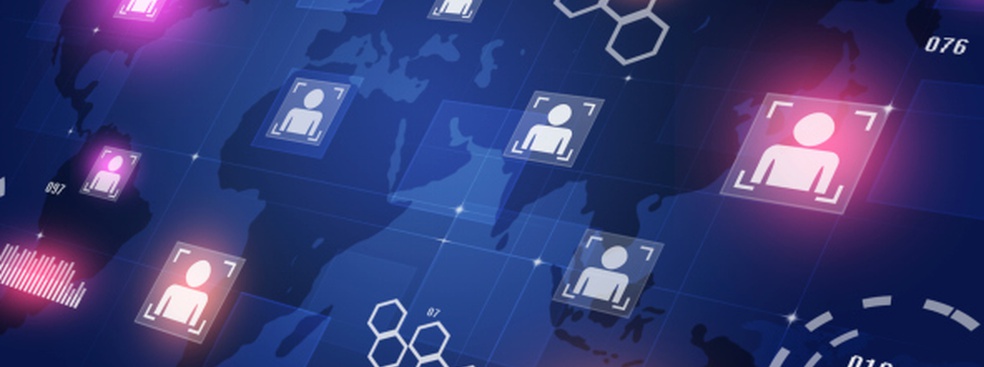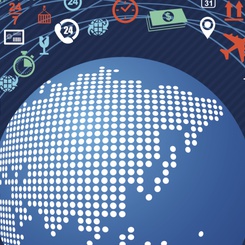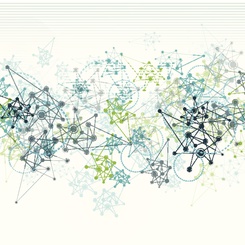With Fabrice Cavarretta and Nicolas Glady
In the knowledge economy, there is a widening gap between the companies that effectively manage data, and those that don’t. To explore the subject further,Les Mardis de l’ESSEC invited a panel of experts to speak on the knowledge economy and the impact of Big Data.
Here’s what they think will change:
1. How companies create value
In modern, knowledge-based economies, the firm’s value-creation dynamic has already changed considerably: For example, "record companies are having more trouble than ever to make profits, while we’re consuming more music than ever.” says Eric Tong Cuong, founder of communications firm La Chose, and former director of EMI. “Deezer and Spotify are the ones making some serious cash and those who create the goods aren’t necessarily the ones who profit from them anymore.”
In today’s economy, data, and the knowledge derived from it, is the new driver of value. Data-driven companies are consistently outperforming their non-data-driven peers. Plus, they are better equipped to make decisions on the fly. This is important because, in the knowledge economy, agility matters more than stability.
Will inequality become an issue, between those companies that can collect and interpret data and those that can’t? On the one hand, Fabrice Cavarretta, Professor of Management at ESSEC, argues that the data economy leaves us open to the same kinds of inequalities as the fossil fuel economy: in a sense, A Google data center is like a mining refinery, taking advantage of an exploitable resources. There is both a negative and a positive side to this.
On the other hand, Frédéric Lefebvre, Representative for French Citizens Living Abroad, argues that we need to control our tendency to caricaturize the knowledge economy as the few making profits at the expense of the masses: “Let’s not forget what Google generates in terms of value for societies… it’s thanks to them that our lives have totally changed.”
2. How they interact with their customers
Suffice it to say that firms know more than ever about their customers. Even before products go to market, data gives companies vital clues as to the motivations and intentions of their prospective buyers.
This change is having a big impact on the start-up economy: “It used to be that first you’d develop a product, and then you look for your customers,” says Fabrice Cavarretta. “Crowd sourcing in the digital age (through platforms like Kickstarter) has significantly changed the start-up dynamic. Before even building a prototype, entrepreneurs can collect capital while also getting a kind of validation from the market. It’s win-win.”
So in a sense, data helps firms respond precisely to the real needs of their customers. But can you take this logic too far? Eric Tong Cuong warns against having too much faith in what he calls a ‘marketer’s fantasy’: “It’s getting so easy to target clients, the temptation is always there to go too far and bombard your clients with ads. Plus, I don’t think the role of marketing is necessarily to figure out exactly what the client wants. If Henry Ford had listened to what his clients wanted, he would have focused his energy on making faster horses.”
3. The kinds of talent they recruit
Big Data is quickly becoming a critically important driver of business success across sectors, but many executives say they don’t think their companies are equipped to make the most of it. This is changing the way they recruit and train talent.
“The data-driven, knowledge economy will increasingly require a specialized labor force – computer literate and well-trained in handling data, developing algorithms and simulation models – in order to ensure that processes and systems stay innovative and agile,” says Nicolas Glady, Professor of Marketing and head of the new ESSEC Accenture Business Analytics Chair. "We may have come to a point where the concept of illiteracy is going to take a new form, and it will up to business school’s like ESSEC to train the Data Architects of tomorrow.”
4. How they (and we) perceive privacy
As the NSA scandal helped reveal, privacy is a big issue in the knowledge economy. That said, users also understand the limitations of privacy in the digital world. “There’s a reason Facebook’s popularity among younger generations is waning, while Snapchat is gaining momentum,” says Eric Tong Cuong. “Younger generations especially are driving demand for ‘anonymous’ platforms, maybe the only way to be truly private when online.” That said, the risks of data leaks are real. “In the French and European tradition – along the lines of the CNIL and CSA – I hope we can create regulatory bodies in order to deal with this threat,” says Fabrice Cavarretta.
5. What they think about globalization
But an effective solution to the privacy conundrum will need to be global. “I believe that any controls initiated by individual economies will be doomed to failure” says Frederic Lefebvre. "It's like the difference between the old economy and the new - there are tax havens and we must fight against them together. Similarly, in regards to privacy controls, we have to imagine a form of regulation that is European, if not international. These will be laws that apply not only to citizens, but also to corporations.”









